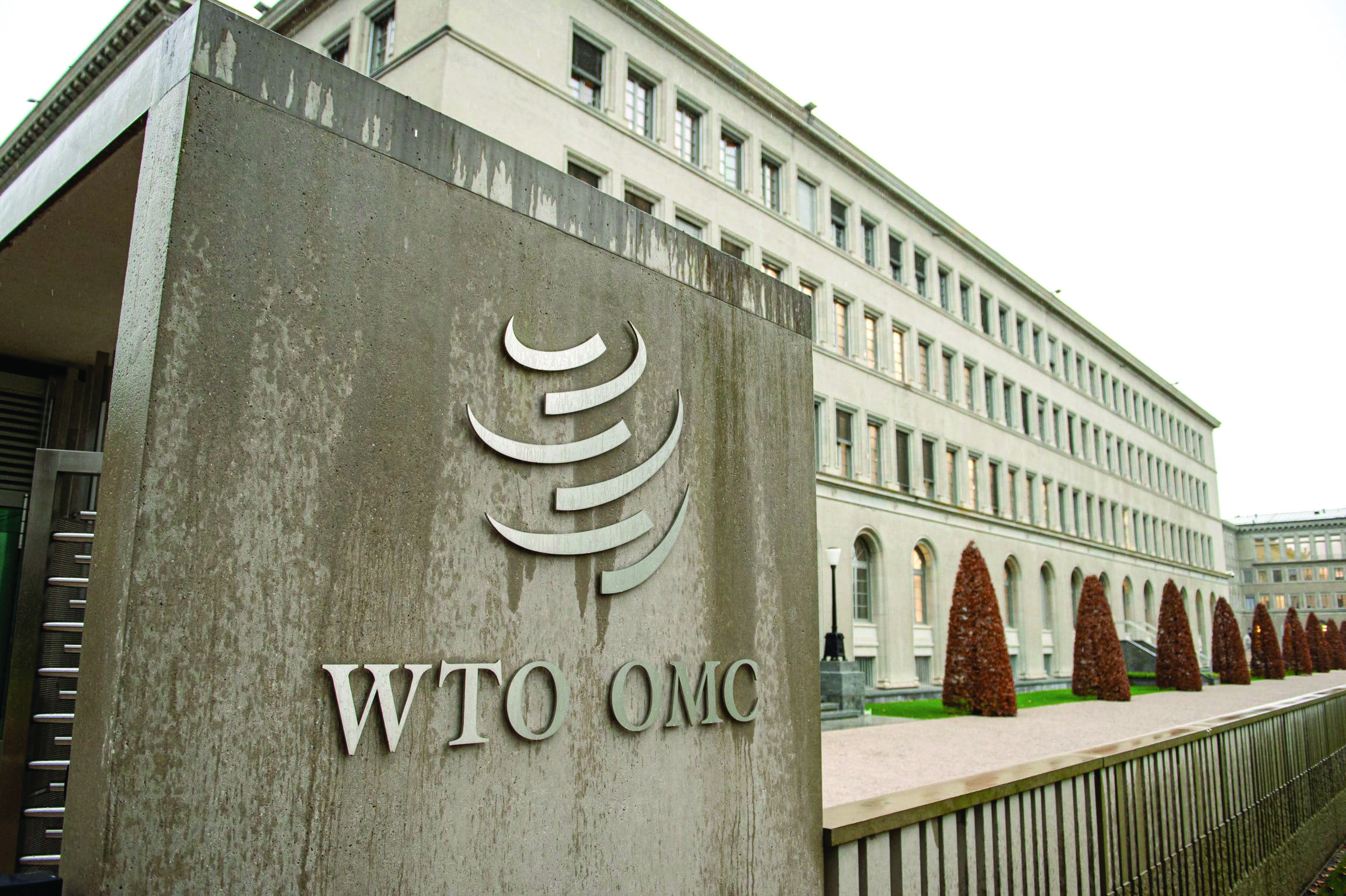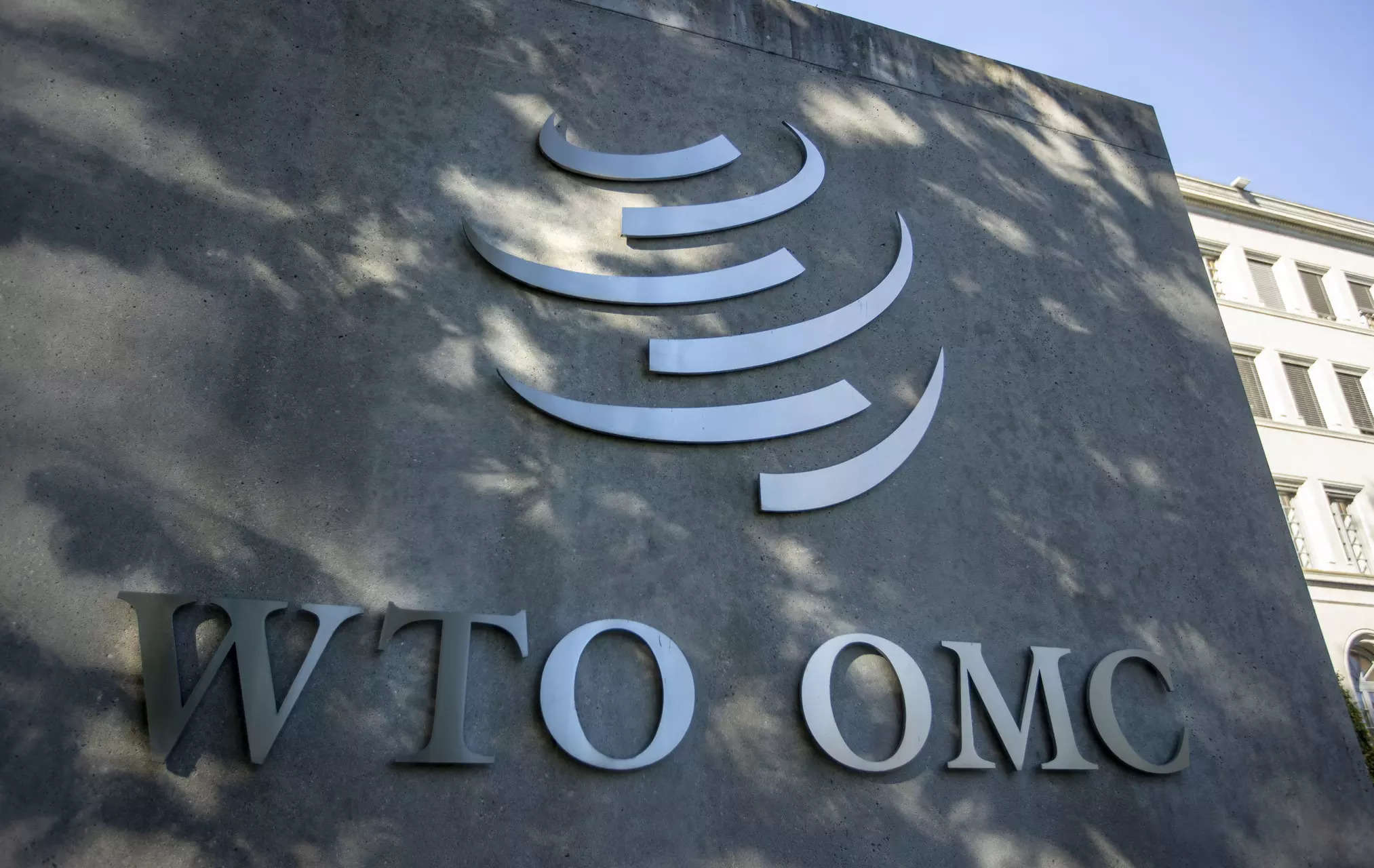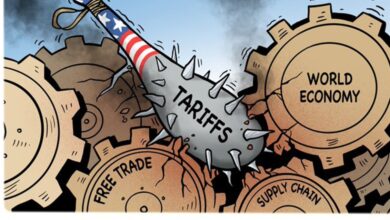India’s Push for Defining E-Commerce Trade in Goods and Services 2023

India’s Push for Defining E-Commerce Trade in Goods and Services 2023
With the rapidly evolving digital landscape, the global economy is increasingly being shaped by e-commerce, a sector that blends the traditional boundaries between goods and services.
Recognizing the need for clarity and a cohesive framework, India has made a significant move by pitching for a clear definition of e-commerce trade in both goods and services at the World Trade Organization (WTO).

The World Trade Organization (WTO) has been a crucial platform for regulating international trade, and as the world continues to embrace digitalization, the definition of e-commerce trade in goods and services has become a pressing issue. In recent years, India has been at the forefront of advocating for a clear and comprehensive framework for e-commerce within the WTO.
E-commerce, as an avenue for international trade, has been under the WTO’s radar for quite some time. However, the lack of a universally accepted definition and the ever-changing nature of technology has made it challenging to achieve a consensus among the member countries. This has implications for trade policies, regulatory frameworks, and international treaties.
Ambiguity in the definition can lead to gaps in regulations, making it difficult for countries to monitor and control e-commerce effectively. It can also create loopholes that may be exploited.
A clear definition ensures that all member countries are on a level playing field, promoting fair trade practices and competition.
Without clear definitions, it becomes difficult to impose or regulate customs duties and tariffs on e-commerce transactions, potentially leading to loss of revenue or unfair trade advantages.
With clarity, countries can better design consumer protection policies specific to e-commerce, ensuring safety and trust for online shoppers.
India’s push is rooted in its rapidly growing e-commerce sector. As one of the largest markets, India understands the potential benefits and challenges that e-commerce poses. By advocating for a clear definition, India aims to:
- Safeguard its domestic industries and traders from unfair practices.
- Ensure its consumers are protected and have redressal mechanisms in place.
- Fulfill its commitment to making the digital economy inclusive and beneficial for all.

While the exact definition India is pushing for remains to be seen, potential definitions could focus on:
- Distinguishing between digital goods (like e-books, software) and physical goods ordered online.
- Clarifying the nature of services provided online, whether they’re purely digital (like streaming) or a mix of digital and physical (like online booking for physical services).
- Accounting for emerging technologies and business models, ensuring the definition remains relevant in the long run.
As discussions continue, it will be crucial for member countries to collaborate and find common ground, ensuring the sustainable growth of e-commerce worldwide. Title: India Pitches for Clear Definition of E-commerce Trade in Goods and Services in WTO

E-commerce has witnessed explosive growth worldwide, and India is no exception. With a population of over 1.3 billion people, India is one of the largest consumer markets globally. The proliferation of smartphones and affordable internet connectivity has further accelerated the growth of e-commerce in the country. Companies like Amazon, Flipkart, and Paytm Mall have become household names, catering to the diverse needs of Indian consumers.
Given this boom in e-commerce, it is imperative for India to advocate for clear rules and regulations governing digital trade within the WTO framework. Clarity in definitions and rules can provide a level playing field for Indian businesses and ensure that they can harness the full potential of the digital economy.

The Importance of Defining E-commerce Trade
- Encouraging Innovation: A clear definition of e-commerce trade can foster innovation by providing legal certainty for businesses and investors. When companies know the rules of the game, they are more likely to invest in research and development, thereby driving technological advancements in the e-commerce sector.
- Facilitating Cross-Border Trade: E-commerce transcends borders, and a well-defined framework can facilitate cross-border trade by simplifying customs procedures, reducing barriers, and minimizing trade disruptions.
- Protecting Consumer Interests: Clarity in e-commerce regulations ensures that consumers are protected from fraudulent activities and counterfeit products. It establishes mechanisms for resolving disputes and ensures that consumers can trust online transactions.
India has been actively participating in WTO discussions on e-commerce. Its stance emphasizes the following key points:
- Inclusivity: India has consistently advocated for an inclusive approach that ensures that e-commerce rules benefit all WTO member states, including developing nations. It highlights the need to bridge the digital divide and prevent monopolistic practices that could harm smaller economies.
- Data Localization: India has been vocal about data localization, asserting that data generated within a country should be stored and processed within its borders. This stance is rooted in concerns about data privacy and national security.
- Balancing Trade Facilitation with Regulatory Oversight: India recognizes the importance of trade facilitation but emphasizes the need for regulatory oversight to protect its domestic industries and interests.
- Cross-Border Data Flow: India supports the idea of facilitating cross-border data flow but believes that this should be done in a manner that respects data privacy and security concerns.

While India’s efforts to define e-commerce trade in the WTO are commendable, they are not without challenges and controversies. Some of the key challenges include:
- Differing National Interests: WTO member states have varying interests and priorities when it comes to e-commerce. Finding common ground among these diverse interests is a challenging task.
- Data Privacy and Security Concerns: The debate over data localization and cross-border data flow is often contentious. Balancing data privacy and security with the free flow of data remains a complex issue.
- Tackling Protectionism: Some countries are accused of adopting protectionist measures that hinder e-commerce growth. India, in its efforts to protect domestic businesses, must ensure it does not inadvertently promote protectionism.
E-commerce is a dynamic sector that necessitates proactive measures from international trade bodies. India’s pitch at the WTO is not just beneficial for its national interests, but also for the global community, as it pushes for clarity and uniformity in an increasingly digital world.

India’s push for a clear definition of e-commerce trade in goods and services within the WTO is a significant step towards creating a fair and conducive environment for digital trade on the global stage.
As e-commerce continues to reshape the global economy, establishing rules and regulations that balance trade facilitation with regulatory oversight is essential. India’s inclusive approach, focusing on bridging the digital divide and safeguarding national interests, reflects the complex challenges and opportunities that e-commerce presents.

In a world where the digital economy knows no borders, defining e-commerce trade within the WTO is crucial for ensuring a fair and prosperous global trading system.





